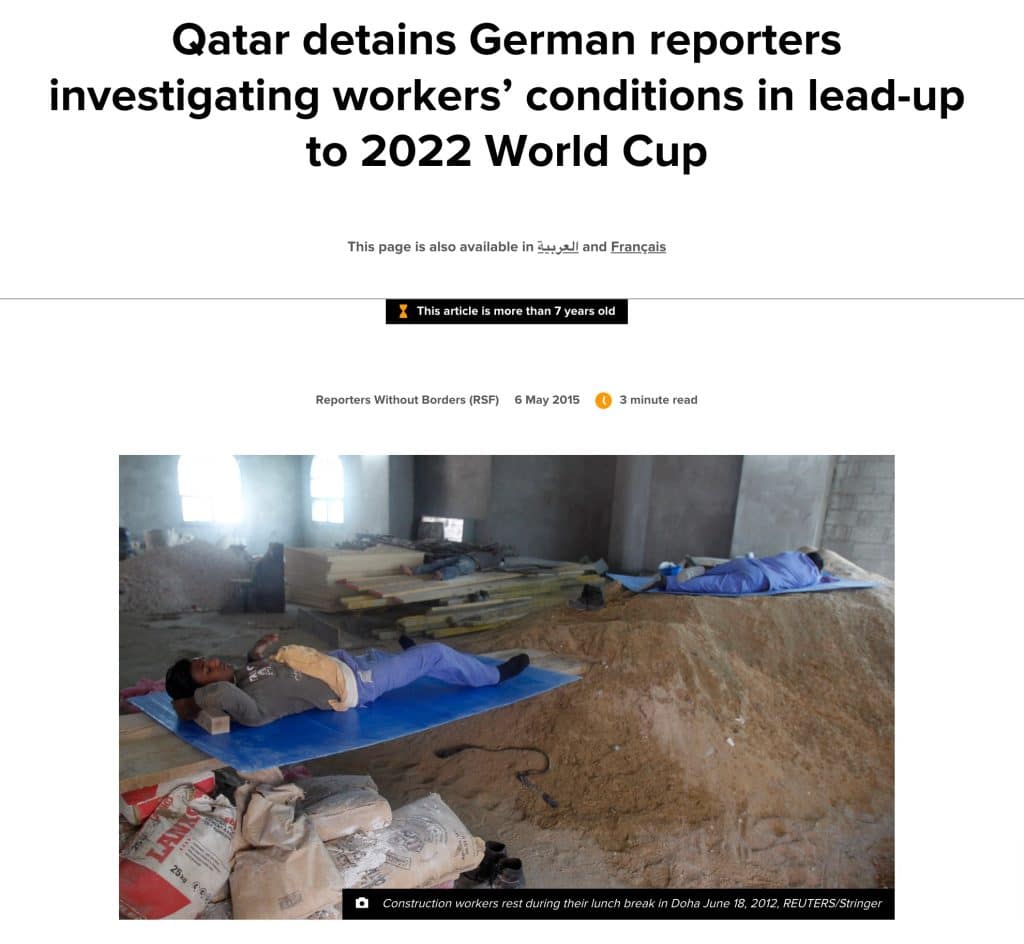December 2, 2010, marked a critical moment in history. It was the date when FIFA announced that Qatar will host the 2022 FIFA World. It was the date that the world’s attention was honed on the small Middle Eastern country as it was to host the world’s most prestigious tournament.
Ever since there has been speculation about collusion and corruption, which has now been proven, for how Qatar was awarded the World Cup. But since then, it has been over a decade of reports of human rights and environmental concerns which has dominated the headlines.
Along with calls from prominent leaders, football associations and players, there is a growing movement of fans calling those to “Boycott Qatar 2022”. From demonstrations pre-match along with large banners and chants from supporters during matches, momentum has been growing in Europe as fans have had enough.
With the World Cup starting on November 20, 2022, the message is getting more intense as public opinion is turning following reports of mishandling of migrant workers, terrible working conditions and even deaths.
On top of concerns over the physical well-being of workers building the massive stadiums, public spaces and living spaces, there is concern over human rights and sustainability issues. From the rights of women to the LGBT, there is also a massive monetary and environmental impact of playing in stadiums that need to be air-conditioned due to the high temperatures in the area.

In terms of human rights reports state that 6,500 migrant workers have died since Qatar was awarded the World Cup in 2010. Whilst this is all deaths, not necessarily those only working on World Cup building projects, Qatar says there were 37 deaths “directly linked to the construction of World Cup stadiums”.
The working and living conditions have been well-reported to be horrible for workers spurring multiple international organizations to condemn the country and demand an overhaul. And while the Qatari government to their credit has made changes to labor laws and wages, there are multiple reforms that are unfinished.
Campaigns in German, Spain and France have even grown to the point where a number of cities have refused to show games. Former German player and captain Philipp Lahm as spoken out strongly about the issues stating that he won’t be going to Qatar as part of the official delegation or as a fan.
On top of the pressures Qatar is facing from the football community, German Interior Minister Nancy Faeser also spoke out criticizing the host nation in October. This rose to a complaint to the German ambassador in Doha and the subsequent visit by Faeser to Doha where she was told that all visitors will be welcomed and treated with respect, regardless of sexuality or gender.
But there is pushback from Sheikh Mohammed bin Abdulrahman Al-Thani, Deputy Prime Minister and Minister of Foreign Affairs of the State of Qatar, as he sees there are double standards at play. The State of Qatar is one of the world’s biggest producers of natural gas and provides 24% of Europe’s total LNG imports, to which he doesn’t see how the countries can strike this ironic tone.
Since the onset of the country being awarded the World Cup, former Finnish national team captain Tim Spary has been a strong advocate for the rights of migrant workers in Qatar. He educated himself as the question of leadership as the captain of his team, especially after a teammate refused to attend a training camp in Qatar.
The growing outcry from players and ex-players, federations and coaches has even pushed FIFA to tell countries to focus on sport. Spary believes that this pivotal moment provides an opportunity for massive change in local governance as well as how FIFA operates.
Boycott Qatar 2022’s Stefan Schirmer brought to light that although the campaign has aims of bringing light to human rights issues, it never had illusions that it could completely stop the tournament.
Instead, the campaign hopes individual soccer fans will opt to tune out and the restaurants and bars will follow suit. They believe that small actions by people across the world will collectively bring a large voice for the world to hear.

